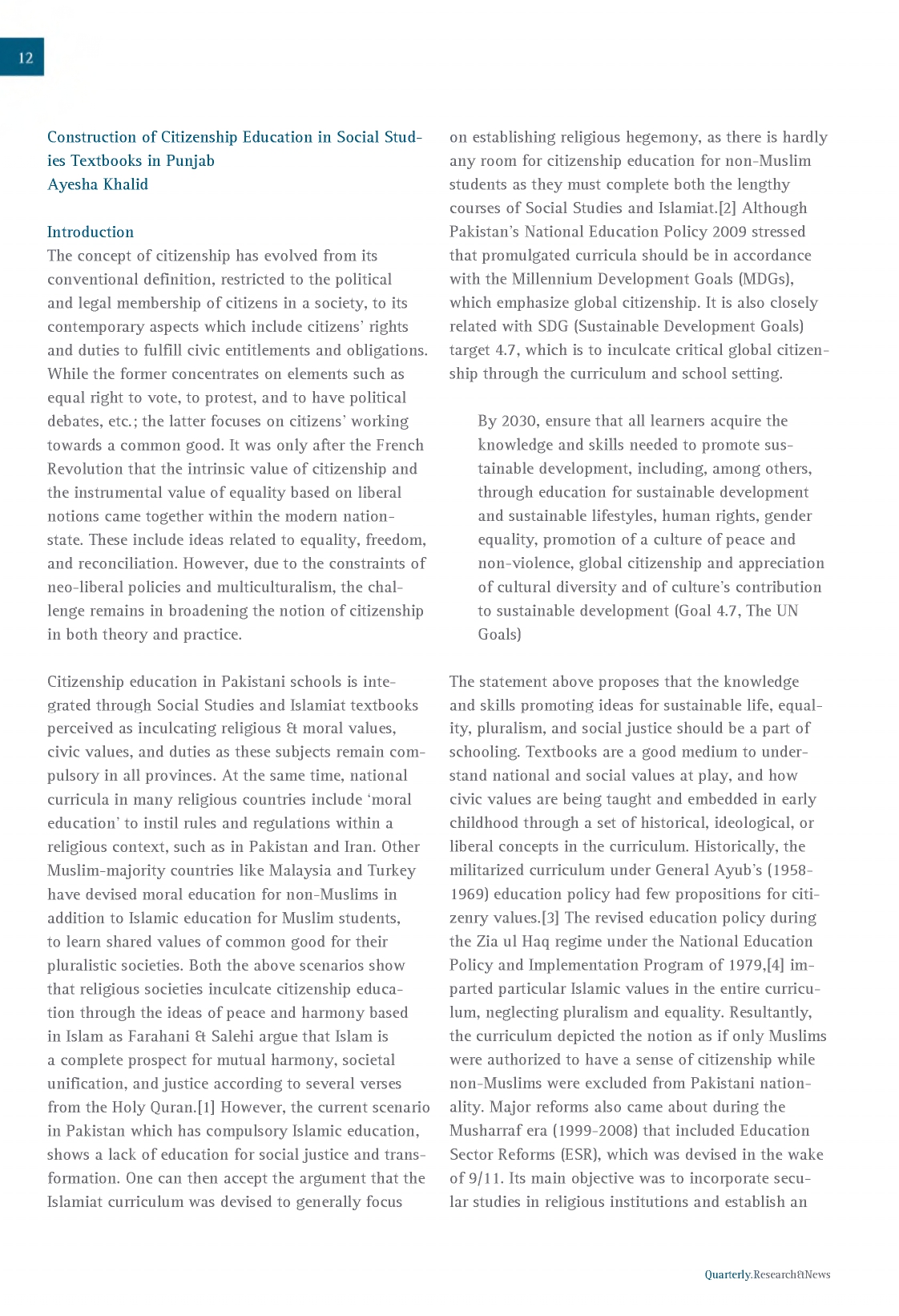
Construction of Citizenship Education in Social Studies Textbooks in Punjab
INTRODUCTION
The concept of citizenship has evolved from its conventional definition, restricted to the political and legal membership of citizens in a society, to its contemporary aspects which include citizens’ rights and duties to fulfill civic entitlements and obligations. While the former concentrates on elements such as equal right to vote, to protest, and to have political debates, etc.; the latter focuses on citizens’ working towards a common good. It was only after the French Revolution that the intrinsic value of citizenship and the instrumental value of equality based on liberal notions came together within the modern nation state. These include ideas related to equality, freedom, and reconciliation. However, due to the constraints of neo-liberal policies and multiculturalism, the challenge remains in broadening the notion of citizenship in both theory and practice. Citizenship education in Pakistani schools is integrated through Social Studies and Islamiat textbooks perceived as inculcating religious & moral values, civic values, and duties as these subjects remain compulsory in all provinces. At the same time, national curricula in many religious countries include ‘moral education’ to instil rules and regulations within a religious context, such as in Pakistan and Iran. Other Muslim-majority countries like Malaysia and Turkey have devised moral education for non-Muslims in addition to Islamic education for Muslim students, to learn shared values of common good for their pluralistic societies. Both the above scenarios show that religious societies inculcate citizenship education through the ideas of peace and harmony based in Islam as Farahani & Salehi argue that Islam is a complete prospect for mutual harmony, societal unification, and justice according to several verses from the Holy Quran.[1]
Citations

